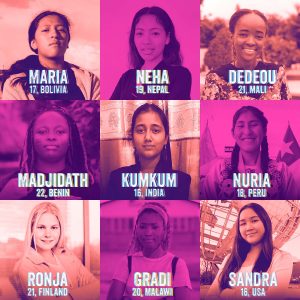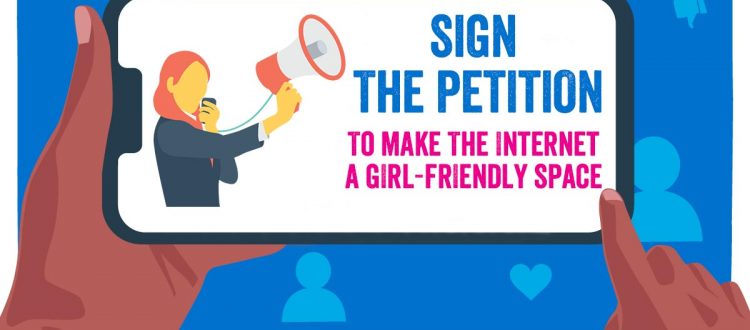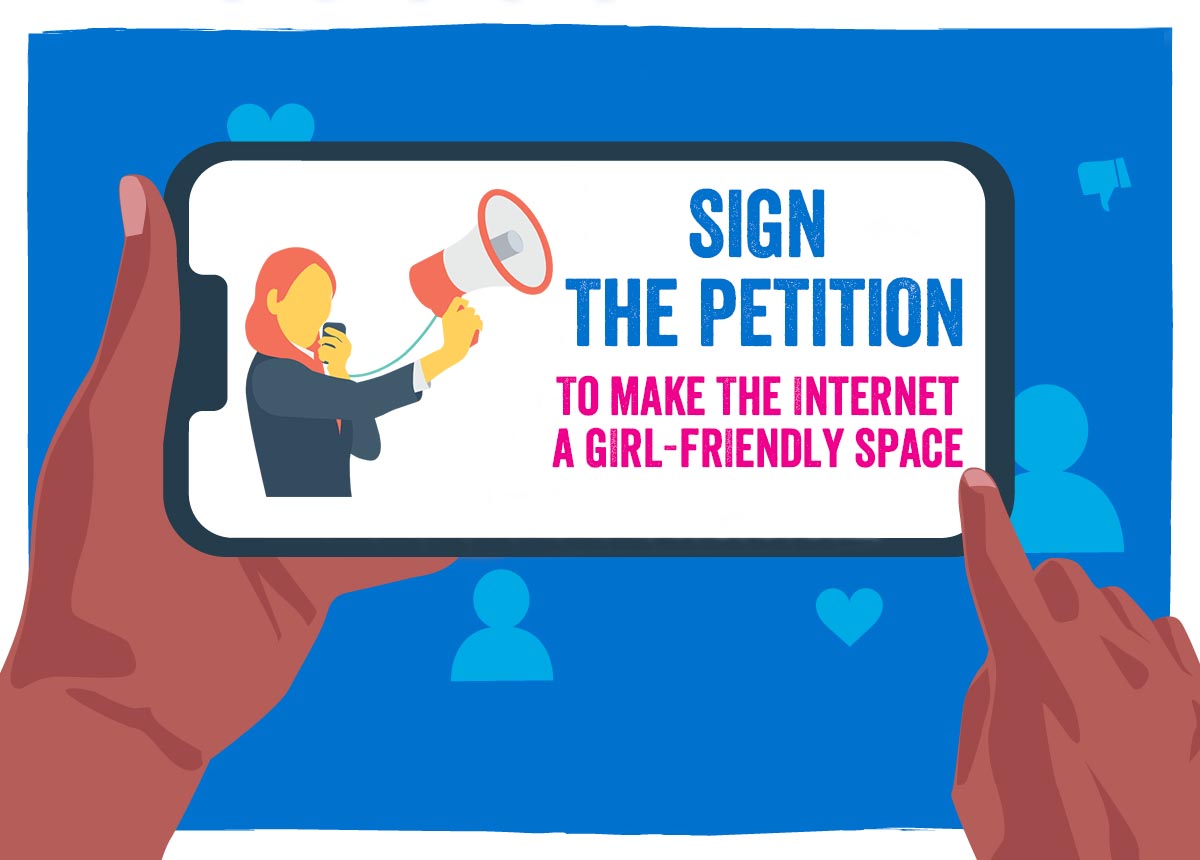Girls Get Equal Global Petition
Foreword
Plan International’s latest report has revealed the impacts of false information online on girls’ lives, learning and leadership and examined the online behaviour and attitudes that limit girls’ freedom and opportunities. As the International Day of the Girl (11 October 2021) is approaching, Plan International is mobilising people around the world to sign girls’ and young women’s petition to address their freedom online. And you are invited to join their action and create an equal and just world for girls!
RESEARCH
The research was conducted across 33 countries, involving a survey with over 26,000 girls and young women in 26 countries, as well as in-depth qualitative interviews in 18 countries. The results are as follows:
- 91% of respondents were concerned about false information online
- False information is having a negative impact on 87% of the respondents
- 46% of girls feel sad, depressed, stressed, worried or anxious as a result of false information online
- 1 in 4 girls feel less confident to share their views because of the false information
- 7 out of 10 girls and young women have never been taught about how to spot false information at school or by family members
We cannot turn a blind eye to the influence of information on the Internet. In this digital era, almost everything in our daily lives relies on the Internet, especially during the pandemic. To practise social distancing and prevent the spreading of COVID-19, girls have to use the Internet for remote learning in which 55% of the respondents are spending more than 7 hours online every day and another 16% are spending over 12 hours. The internet has become an inevitable element of girls’ lives.
Yet, the internet is full of danger and information that may threaten the girls, including incorrect information about the pandemic and websites that fake girls into human-trafficking. These all are barring girls from using online resources freely and become obstacles to their development.
“Someone once created an account under my name and wrote to me threatening to publish pictures of me. There is always the fear of doing something on the internet that will reflect badly on me in the future.” (Hadja, a girl from Guinea)
“I saw a job opening online one day and left my contact number. A few days later, I found myself in a WhatsApp sex group. I withdrew but I was traumatised for a long time.” (Chimène, a girl from Benin)
“Some of my friends believed rumours about COVID-19, including that the pandemic is a hoax and that wearing masks is unnecessary, and later got infected with the virus.” (Gana, a girl from Egypt)
“I once read that tampons would cause cancer and someone online said the mixture of orange peels and garlic would cure coronavirus. My friend thought this miracle homemade medicine can really work.” (Lisa, a girl from Brazil)
To protect girls online, Plan International comes up with the following solutions. Governments must promote digital literacy and protect and monitor girls’ rights online; online platforms must take responsibility to investigate and address the implications of false information; media outlets must commit to not spreading false information on their channels and networks; network providers must work with government to increase meaningful connectivity and make internet access more inclusive; last but not least, we as netizens should make positive influences online, create safe and reliable content on the Internet and advocate for online justice with girls by participating in this petition.
The petition letter
We represent the 26,000 girls who spoke to Plan International about the spread of false information online. Nine out of 10 girls have been harmed by it.
We are urgently calling on governments around the world to act now. Will you sign our petition?
Through the internet we can learn, connect, express our thoughts and talents, have fun and discover new horizons. But we’re being held back!
Every day we see lies and stereotypes about our bodies, who we are and how we should behave online. False information fuels prejudice.
Time and again videos and images are manipulated to objectify and shame us. We see fake facts about the COVID vaccine. The truth is manipulated in elections. And we watch as women leaders – our role models – are attacked and undermined with conspiracy theories and rumours.
False information makes us doubt ourselves and our worth. It harms our mental health. It affects our trust in politics and politicians. And most of all? It stops us reaching our potential.
Lies spread faster online and this problem is increasing every day. Social media is becoming an even more vital part of our lives, especially as this pandemic moves our lives online.
Right now? We’re left to deal with this on our own.
We are urgently asking governments to educate girls – and all children – in digital literacy. To stay safe, girls need to tell what’s true from what’s false. And all young people need to be able to question information and check facts before they believe and share it. This is a vital step.
Different solutions are needed in different countries – governments could add digital literacy to the curriculum, or they could run awareness raising campaigns.
The power to help us seek and spread the truth is in their hands.
Many of our sisters around the world do not have access to the internet yet, but this is what they will face. Along with abuse and harassment! Girls need to be online AND safe.
Help raise our voices! Thank you.
Maria, 17, Bolivia; Kumkum, 16, India; Nuria, 18, Peru; Sandra, 16, US; Neha, 19, Nepal; Dedeou, 21, Mali; Ronja, 21, Finland; Madjidath, 22, Benin; Gradi, 20, Malawi

Join Their Action!
I am signing this petition in solidarity with girls who are speaking up about the spread of false information online. They are urgently asking the governments around the world to educate children in digital literacy: Girls need to be able to tell what is true to stay safe. And all young people need to be able to question information and check facts before they believe and share it. This is a vital step so girls are #FreeToBeOnline.
*The petition is closed on 10 March 2022. Thank you for your support!*
Plan International’s Report on #FreeToBeOnline:

